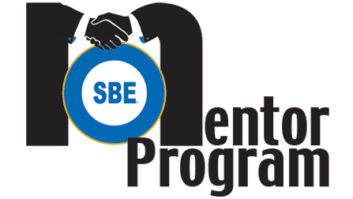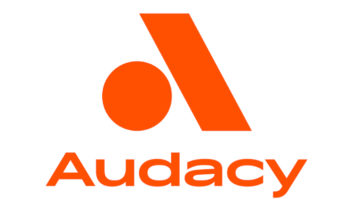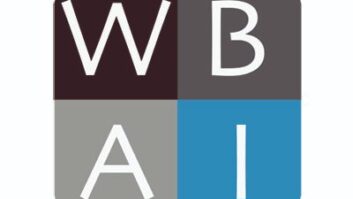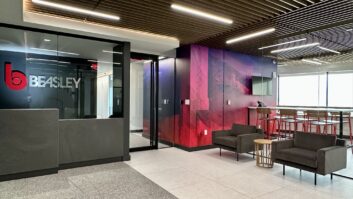It’s widely agreed that the U.S. radio industry is not attracting enough new broadcast engineers to replace those who are retiring. Not as well publicized is that many incoming engineers lack the diverse skill set — the “all-roundedness” — of their predecessors.

Trained in IT-focused schools, these engineers have minimal knowledge of RF equipment management and operational safety, let alone the day-to-day details of plant maintenance, HVAC servicing and how to get along with their radio station bosses.
It is for these very good reasons that the Society of Broadcast Engineers created the SBE Mentor Program. Now in its second year, the program pairs experienced broadcast engineers as mentors with engineers who are new to broadcasting. The pairing allows a mentor to pass on their years of hard-won knowledge and experience to the mentee. In turn, the mentee benefits professionally (and personally) from the relationship, especially during times of broadcast crisis when a calm, experienced advisor is just a phone call, email or text away.

“There are so many elements of broadcast engineering that today’s IT-focused new engineers just haven’t been trained to deal with,” said Kimberley Sacks, chair of the SBE’s Mentoring Committee and director of engineering at iHeartMedia in Fort Collins, Colo.
“Having access to an experienced broadcast engineer who has dealt with all these problems already and wants to pass on their knowledge is definitely helpful.”
The SBE Mentor Program is free to all society members. The terms of taking part are straightforward: Participants sign up for a year at a time, and try to meet by phone at least once every two weeks. Nothing stops the mentor/mentee from communicating by whatever means works best for them and as often as they see fit. Face-to-face meetings are also just fine with the SBE, and if the two continue to work together once the mentoring term has passed; well, that’s just fine too.
Mentors have to have been in broadcast engineering for at least five years to take part. Mentees have to have less than five years’ experience in the profession and be currently employed.

MENTORS GIVING BACK TO RADIO
Chuck Kelly, Nautel’s sales manager for the Asia Pacific region, is an SBE mentor. A past president of the society, he has considerable broadcast engineering experience. Chris Tarr, director of technical operations for Entercom in Milwaukee, manages six stations in Wisconsin; he too is a mentor.
These SBE members became mentors to give back to radio, the medium they love so well. “It is important for those of us who have the time to share information and tips with younger people, and encourage them to get into our business,” said Kelly.
“I’ve been in this business for two decades, and had lots of help from mentors over the years,” Tarr said. “Even today, I have what I call ‘a Rolodex of people smarter than me’ who I can call for advice and insights.”

Both men provide their mentees with all kinds of broadcast engineering information. It ranges from trouble-shooting aging transmitters to integrating the various generations of production technology found in U.S. radio stations — especially those in smaller communities — and everything else in-between.
Teaching engineers how to stay safe is a big priority for Chuck Kelly.
“We’re going to see situations where an IT-trained engineer who has never worked with anything beyond 5 volts is going into an 8,000 volt transmitter in the middle of the night to fix it,” he said. “I worry about that.”
Meanwhile, Chris Tarr advises his mentees “on how to allocate their time when managing multiple stations, which can be extremely complicated to deal with,” he said. “I also like to educate them on how to avoid the political infighting that can occur at any radio station, so that they can stay focussed on actual engineering.”
LEARN FROM THE MASTERS
Maria Oliver, an audio engineer with KSJO(FM) Bolly Radio 92.3 FM in San Jose, Calif., is a mentee. She joined the program after the passing of an earlier mentor, Bill Brown of SBE Chapter 39 in Tampa, Fla.
“He was an awesome human being,” said Oliver. “He took me to my first SBE meeting, where everyone was so open and supportive. As well, Bill’s twisted sense of humor worked well with my twisted sense of humor, which really helped.”

Dave Hartman heads up engineering/IT for PraiseFM, a four-station group in Osakis, Minn. “Chris Tarr is my mentor and the SBE did a fantastic job of pairing us up,” said Hartman. “Chris took the time to understand where I came from and what I needed. From that first meeting we try to connect once a week usually to discuss some question that I have but Chris has made himself available any time, day or night if I really need his input.”
Oliver’s mentors have made the difference in helping her handle the technical aspects of program production at Bolly Radio.
“The people at the station are great talents when it comes to speaking and providing content, but they have zero tech skills,” she said. “I make sure that the vision the talent has for their programs happen, including when they are out of state or out of the country, and still needing to do their shows.”
Hartman’s mentor helps fills the gaps in his RF education; particularly when he is on the job at a remote transmitter site somewhere in rural Minnesota.
“Coming from a technical background but being new to broadcast engineering, there are skills that I lacked which I found were not easily available, especially if you do not live in a larger city where there are a number of engineers to connect with or a senior engineer to work under to develop those needed skills,” Hartman said.
“Already in just a few weeks I have learned so much. We have had discussions on FCC regulations and reporting, antenna and RF theory, and AoIP routing and control. I always look forward to connecting with Chris as I know I will be walking away with some great knowledge and better understanding then I did before the call.”
The mentors and mentees who spoke with Radio World benefit from the program, but so do the stations that employ Oliver and Hartman, and the radio industry as a whole, as engineers learn from the best in the industry — and all for free.
Find more about the program at sbe.org/mentor. Interested in becoming an SBE mentor or mentee? Contact Education Director Cathy Orosz at (317) 846-9000 or [email protected].












